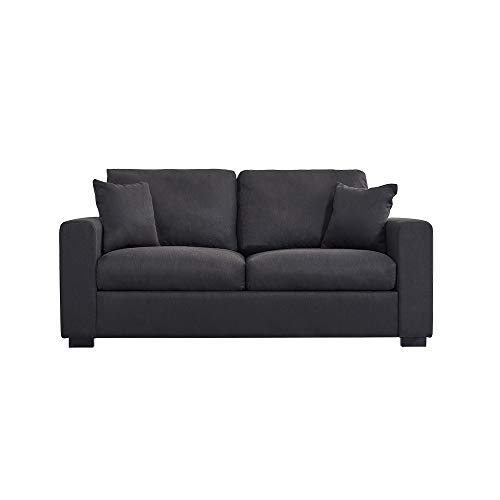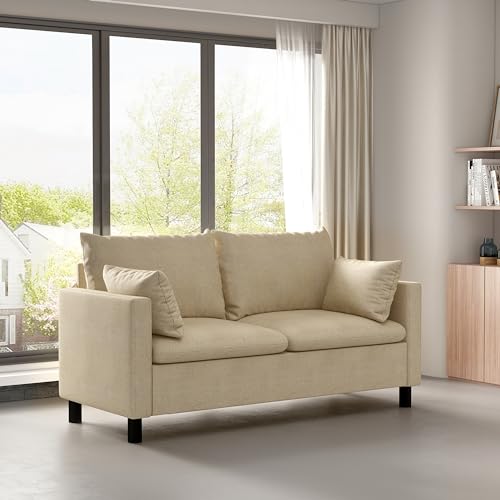Forget 2 Seater Leather And Fabric Sofa: 10 Reasons Why You Don't Real…
페이지 정보

본문
 Choosing Between a 2 seater fabric Settee 2 seater fabric sofa Leather and Fabric Sofa
Choosing Between a 2 seater fabric Settee 2 seater fabric sofa Leather and Fabric Sofa If you're looking for a new sofa it is difficult to decide between fabric or leather. This is particularly relevant if you're new to knowledge of furniture.
If you're looking for a new sofa it is difficult to decide between fabric or leather. This is particularly relevant if you're new to knowledge of furniture.If you have kids or reside in apartments the leather option could be a good fit for you. It is easy to clean and looks stunning in most homes.
Comfort
A sofa is the focal point of most people's living spaces and is a significant purchase. You want a sofa that you can sit on for hours, that looks great and will stand the test of time. It can be difficult to decide between small fabric 2 seater sofa and leather but you must consider your budget, lifestyle, and other priorities before making a decision.
Leather is a luxurious material that is soft and luxurious and is elegant in a home. It is strong, stain-resistant, resistant to pets and children, and will last for a long time when properly cared for. However, it could be more expensive in the beginning and could require regular conditioning to prevent cracking or peeling.
Fabric sofas are available in a huge variety of colours, styles and fabrics. They are a more affordable choice than leather sofas. They are also soft and more cosy, with the ability to feel "broken in" from the beginning. They are more prone to dust mites or pet hairs and require more frequent cleaning. However, thanks to advances in technology and performance fabrics there are now hypoallergenic options available.
The longevity of a fabric sofa will depend on the quality of the fabric 2 seater sofa, but most fabrics will last for up to 15 years if properly cared for. Regular vacuuming and deep-cleaning will ensure that the small two seater fabric sofa stays clean and free of stains and odours. They also can shrink and flatten over time, just like leather. Additionally, many couches made of fabric have been treated with chemical to make them stain-resistant and flame retardant. These chemicals can release volatile organic compounds that could alter the quality of indoor air and trigger allergies.
Durability
When buying sofas, we typically select fabrics that are extremely durable, as this is important if you have pets and children. You don't want to spend an excessive amount upfront and end up with buyer's remorse after the first spill or claws that are crowbarred. Also, you don't want to buy something that's cheap but can't withstand daily use.
Leather, however is extremely durable and has incredible tear strength. It can last up four times longer than fabric and is naturally resistant to fading, cracking and flaking. It can be conditioned to replenish its natural oils and to make it appear new.
Fabrics are a less expensive alternative and are available in a variety of colors patterns, textures, and patterns to suit any interior design. They are also cleaner than leather and can withstand a fair amount of wear and tear however they tend to be more prone to moisture and may be susceptible to fading in time.
Microfiber is extremely durable and comes in a variety of colors. However, it might not be as sturdy as genuine leather. It also might not be able to withstand scratches. However, it's an excellent choice for families due to of its resistance to stains and spills and is easy to clean, generally with a damp cloth.
Suede is more difficult to clean and repair than leather. It can lose its shape and feel rough if not regularly maintained. It's also a thin material and so might not be as strong as cowhide or sheepskin leather.
Allergens
Fabrics can have a significant impact on allergies. It is crucial to know how different options perform. Fabrics are known to hold allergens, such as dust mites and pet dander which can trigger symptoms such as hay fever, asthma, rhinitis and eczema. This is due to the fact that these fabrics provide the perfect environment in which they can thrive.
However, leather, unlike other materials, does not accumulate these allergens, and provides a consistent level of comfort, regardless of the season. It can also cause dermatitis in people who have contact dermatitis, or are sensitive to the chemicals used in tanning. Using vegetable-tanned leather as well as maintaining a vigilant skincare regimen is crucial to reducing skin reactions.
Both leather and fabric sofas are sturdy, but the material you choose will have a major impact on how well your sofa is able to stand up to wear. A top-quality fabric will not suffer from fading or sagging and can stand up to spills body oils, spills and everyday use. Many modern fabric sofas even come with stain-resistant treatments which make cleaning up simple.
Although you may not be able completely prevent an allergic reaction from the leather on your sofa, it is possible to avoid allergens by having a lint roller near and regularly cleaning your living space. This will lessen the amount of dirt, pet hair and dust mites you find on your sofa. If you are still experiencing allergies, you should consider swapping your sofa for a more hypoallergenic model. For example, a leather sofa made of synthetic or vinyl is less likely to hold dust mites and pet dander and can help you breathe more easily.
Scratches
When buying a leather sofa, it is crucial to think about how much wear and tear you can anticipate from it. The finish, color and quality of the leather are all crucial aspects in how long a couch will last. You also want to make sure that it is durable enough to withstand spills and other accidents. This can be accomplished by looking for a couch with a solid hardwood frame and high-density foam cushions.
Leather can be scratched for various reasons, such as stretching and marking the territory or recovering the stress. Scratches vary in severity. They vary from minor surface scratches, to deep cuts or punctures. Minor scratches can be repaired by applying a leather conditioner to the area affected. This will help to restore the balance of oil and moisture in the leather, which will prevent it from drying out and cracking. Deep scratches and cut may require a different approach based on the severity of damage.
It is recommended for cat owners to trim their cats' nails regularly. This will stop them from scratching on the couch. You can also redirect their scratching behaviour by giving them alternative scratching surfaces like sisal rope or cardboard. You can also use a pet-safe furniture polish that you can apply using a a soft, clean cloth.
It is important to clean your leather couch regularly and keep it out of heat and direct sunlight, as they can dry it out. This can cause it to crack and is often difficult to repair and frequently requires reupholstery. It is also a good idea to use a leather conditioner to keep the leather supple.
Smell
A leather couch tends to have a slightly different scent than fabric. It's because it's more porous and can absorb unwanted odors, such as smoke, body odor or food easily. The good news is that the smells will usually disappear after a while and especially when you use a non-toxic, fragrance-free cleaner.
If the smell is strong, it could indicate that there's something wrong with the foam. This is usually caused by chemical off-gassing from petroleum-based polyurethane. If this is a concern you should look for couches that are manufactured with CertiPUR US certified latex or natural latex.
Another method to detect fake leather is to look for bumps or a rough texture on the back of the sofa. This is a clear indication that it's not genuine top grain leather. You can also do an examination by laying the sofa over and observing any visible upholstery backing. If it is detect any visible backing, it's likely a synthetic material like polyurethane or polyester. These has a distinct smell than true leather.
Regularly cleaning your leather sofa will help to keep it in good condition and smell great. This will keep it looking and smelling great and will also stop it from becoming stiff or cracked over time. Start by vacuuming and dusting the couch with baking soda (a natural method to get rid of smells). This is to be done every small two seater fabric sofa weeks to get rid of dust or dirt. Apply leather conditioner to preserve the color and texture of your sofa.
- 이전글You'll Never Guess This Large 2 Seater Fabric Sofa's Benefits 24.10.26
- 다음글What's The Job Market For Sofa Fabric 2 Seater Professionals? 24.10.26
댓글목록
등록된 댓글이 없습니다.

